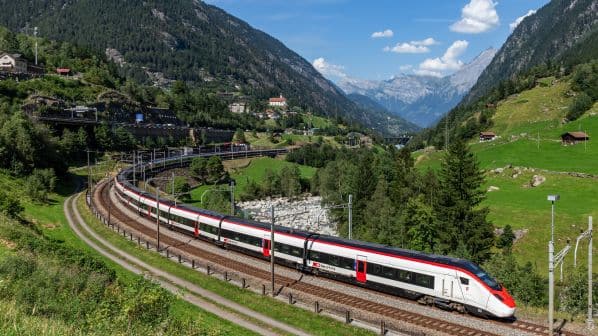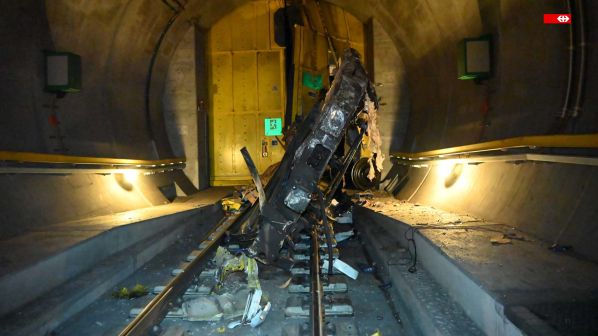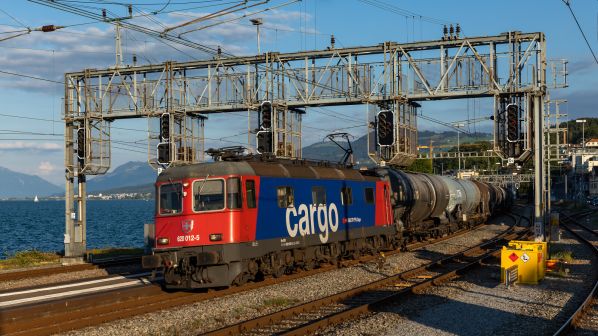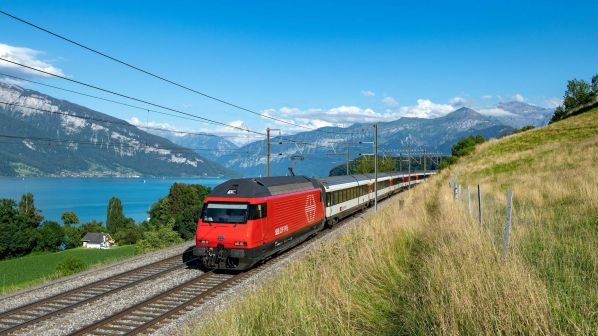SWISS Federal Railways (SBB) has reported a profit of SFr 99m ($US 111m) for the first half of 2023, up from a loss of SFr 142.3m the year before and SBB’s first positive result since 2019.
SBB says that this was driven by the improved financial performance of both its Infrastructure Energy and passenger divisions. SBB’s main line passenger business was also back in profit for the first time since 2019, reporting a positive first-half result of SFr 13.7m compared with a loss of SFr 122.9m in 2022.
The regional passenger business reported a profit of SFr 18.3m, up from SFr 5.9m the year before, and improved the ratio of costs covered by income from 56.2% to 60.1%.
SBB says that passenger traffic has recovered more quickly than expected, rising above pre-pandemic levels for the first time in March this year.
Since then, demand had been higher than in 2019, with a total of 1.33 million passengers travelling on SBB services every day, the highest figure ever recorded and up 21.4% on 2022 and 3.04% on 2019.
Despite rising passenger numbers, train punctuality was 93.6% in the first half of 2023, up by 0.5 of a percentage point on the year before.
A total of 5.7 million passengers were carried by SBB’s international services in the first half of 2023, 20% up on the previous record set in 2019.
SBB says that over 95% of passengers purchased their tickets using digital channels or ticket vending machines in the first half of 2023.
The Infrastructure Energy division profited from a mild winter and favourable market conditions, making a profit of SFr 48.5m compared with loss of SFr 24.2m in 2022.
However, SBB says that this is not enough to compensate for the three-fold increase to SFr 164.9m of the loss reported by this division for 2022 as a whole.
Freight loss
Despite higher income, SBB’s freight business made a loss of SFr 18m in the first half of 2023, compared with a loss of SFr 23m the year before. SBB says that is due to persistent cost pressure and an economic slowdown.
On-time freight train performance at SBB Cargo Switzerland was 92.4%, 0.6 of a percentage point up on the first half of 2022.
SBB Property reported a positive result of SFr 114.4m, down from SFr 130.3m the year before. As well as managing stations on the Swiss national network, SBB Property undertakes development projects in conjunction with local authorities, generating long-term recurring revenue that supports Infrastructure activities and SBB’s pension obligations.
Property income also makes an important contribution to reducing SBB debt, which currently stands at SFr 11.4bn. Although debt is now increasing at a slower rate than before, SBB says that it remains above the ceiling set by the Swiss federal government.
Debt burden
This debt burden is driving efforts to improve efficiency and productivity, as SBB says it needs to make a profit of between SFr 400m and SFr 500m a year to ensure its financial stability.
SBB is working to cut its expenditure by SFr 6bn by 2030, and its primary objective is to ensure that its main line passenger business returns to sustainable profitability after the impact of the Covid-19 pandemic. This will enable SBB to make the required investment in rolling stock and fleet maintenance facilities from its own resources and without further increasing debt.
Working with the Swiss federal government, SBB also wants to eliminate the structural deficit of its wagonload freight business. SBB once again owns 100% of its freight business SBB Cargo, having completed the purchase of the 35% stake held by Swiss Combi last month.
In order to achieve financial stability, SBB says that the losses made by its Infrastructure Energy division must be compensated and future deficits avoided.
To avoid potential energy shortages and the impact of strong upward movements in energy prices, by 2030 SBB aims to produce itself 95% of the traction current required during the six-month winter period. This includes intensifying its energy-saving campaign, developing its existing hydro-electric power stations and increasing annual solar power production to 100GWh by 2030 and 160GWh by 2040.
In the short term, SBB is working to restore the Gotthard Base Tunnel to full operational capacity following the freight train derailment on August 10. SBB says that it is also facing the increasingly difficult task of maintaining and expanding the network without suspending train services.
Cybersecurity is another major concern. The major increase in the number of cyber attacks since the Covid-19 pandemic means that SBB is now investing “dozens of millions” of Swiss francs every year to improve cybersecurity.




